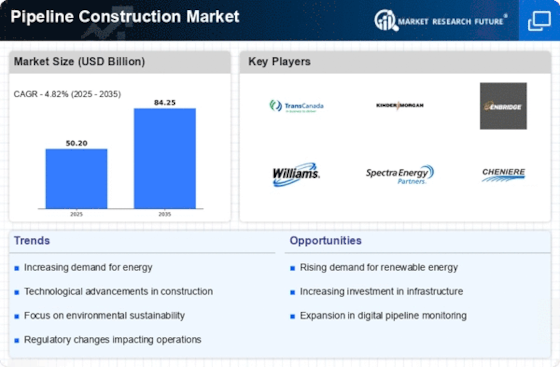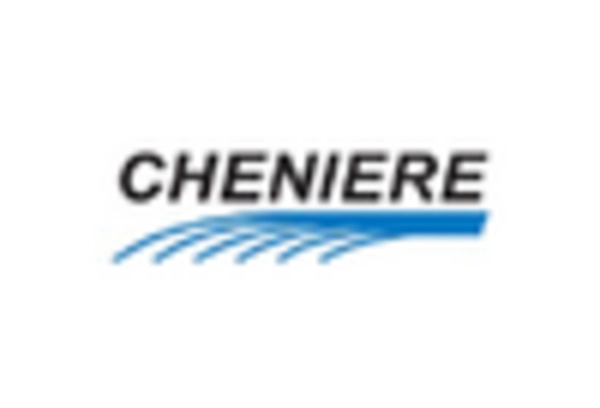Market Share
Pipeline Construction Market Share Analysis
The Pipeline Construction Market is witnessing strategic developments as companies seek to establish a dominant position in the dynamic and essential sector of energy infrastructure. To gain a competitive edge, businesses are employing a range of market positioning strategies that span technological innovation, project diversification, and sustainability initiatives. Here are key strategies employed in the market share positioning of Pipeline Construction: Innovative Technologies and Construction Methods: Leading companies in the Pipeline Construction Market are investing in innovative technologies and construction methods to enhance efficiency, safety, and overall project delivery. This includes the use of advanced welding techniques, robotics, and real-time monitoring systems. Innovations not only improve construction processes but also position companies as industry leaders capable of delivering projects with cutting-edge technology. Diversification Across Energy Sources: To mitigate risks and broaden market reach, companies focus on diversifying their pipeline construction projects across various energy sources. This includes pipelines for oil, natural gas, and renewable energy projects such as hydrogen and carbon capture and storage (CCS). Diversification allows companies to adapt to changing market demands and regulatory environments, positioning them as versatile and resilient players in the pipeline construction sector. Emphasis on Safety and Compliance: Safety is a top priority in pipeline construction, and companies are investing in robust safety measures, training programs, and compliance with industry standards. Earning certifications and adhering to stringent safety protocols not only protect workers and the environment but also enhance a company's reputation for reliability. Positioning pipeline construction projects as safe and compliant contributes to customer trust and long-term success in the market. Sustainability and Environmental Stewardship: With a growing emphasis on sustainability, pipeline construction companies are adopting eco-friendly practices. This includes minimizing environmental impact, utilizing recycled materials, and implementing erosion control measures. Positioning pipeline construction projects as environmentally responsible aligns with global sustainability goals, meets regulatory requirements, and appeals to environmentally conscious clients. Strategic Alliances and Partnerships: Collaborative efforts with other stakeholders in the energy industry, such as energy producers, engineering firms, and technology providers, form a strategic approach. Partnerships enable companies to offer integrated solutions, from project design to construction and maintenance. Joint ventures and collaborations enhance the overall value proposition, making a company more attractive to customers seeking comprehensive pipeline construction services. Global Market Expansion: Companies aiming for increased market share strategically expand their geographic footprint. This involves entering new markets, establishing partnerships, and adapting construction methods to meet diverse international standards. A global presence not only broadens the customer base but also positions a company as a reliable supplier capable of meeting the diverse needs of an international clientele. Investment in Skilled Workforce and Training Programs: The pipeline construction industry requires a skilled workforce, and companies invest in training programs to enhance the capabilities of their personnel. Developing a highly skilled and trained workforce contributes to project efficiency, safety, and customer satisfaction. A skilled workforce also positions a company as a leader in workforce development within the pipeline construction sector. Adoption of Digitalization and Project Management Systems: Companies are increasingly embracing digitalization and project management systems to streamline operations, enhance communication, and improve overall project efficiency. Utilizing advanced software for project planning, scheduling, and monitoring contributes to successful project delivery. Positioning pipeline construction projects as digitally optimized showcases a commitment to efficiency and innovation, attracting clients seeking modern and well-managed projects.


















Leave a Comment